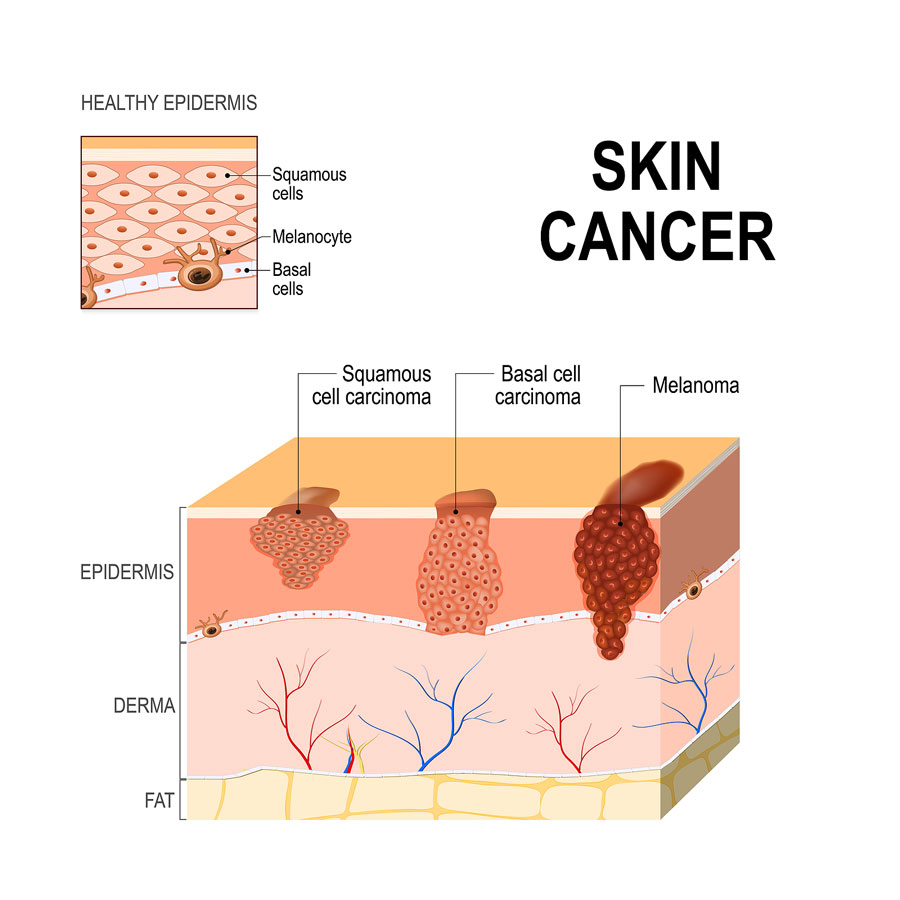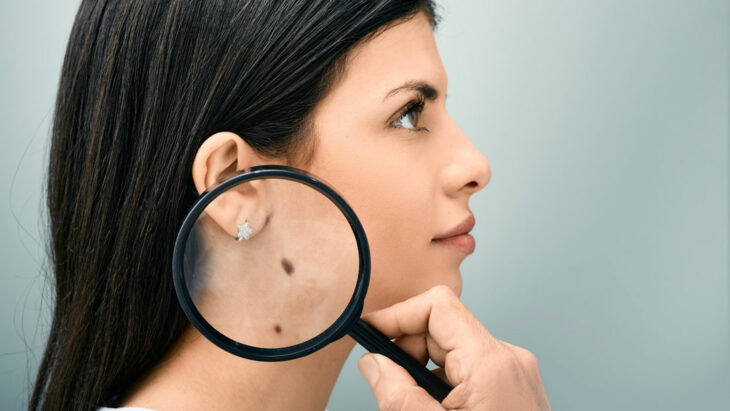Dr. Dawn Hansen of Dermatology Specialists of Mississippi in Biloxi is a board-certified internal medicine specialist with over 20 years of dermatology experience. Dr. Hansen, along with board-certified dermatologist Dr. Peter Barnes, diagnoses and treats a variety of skin concerns, including acne, eczema and psoriasis. Dr. Hansen also specializes in non-invasive skin rejuvenation and is a skilled cosmetic injector.
Dr Hansen has developed a passion for educating others on the importance of annual screenings to detect skin cancer early and how to protect our skin from the sun’s damaging rays. Here, she answers your most pressing skin cancer questions:
WHAT ARE THE MOST COMMON TYPES OF SKIN CANCER THAT YOU SEE?
Skin cancers can be divided into two types: non-melanoma (including basal and squamous cell carcinomas) and melanoma. Melanoma is the least-common type that I see; however, it also is the most aggressive. Basal cell carcinoma is the most common, typically appearing as abnormal growths that resemble a waxy bump, sore or scar. Squamous cell carcinoma often looks like scabs, with a crusty patch growing on top of inflamed, red skin. About 90% of these non-melanoma skin cancers are associated with sun exposure.
Melanoma is the most serious form of skin cancer, and it can be fatal if left untreated. It can occur anywhere on the body as the skin cells that produce pigment mutate and grow rapidly, forming a tumor that resembles a mole or develops from a mole.

WHAT TREATMENT OPTIONS DOES YOUR PRACTICE OFFER?
At Dermatology Specialists of Mississippi, we offer multiple advanced, proven skin cancer treatment options, including Mohs micrographic surgery and image-guided superficial radiation therapy (IG-SRT).
Mohs surgery provides three proven benefits: high cure rates, minimal scarring and quick recovery. Board-certified dermatologist and fellowship-trained Mohs surgeon Dr. Lisa Chastant performs the procedure, removing only the cancerous area and preserving as much healthy skin as possible. This treatment improves the cosmetic outcome and is commonly used for skin cancers on highly visible areas like the face, neck, ears and hands.
IG-SRT is the non-surgical gold standard treatment for non-melanoma skin cancer. This surgery-free treatment has a 99% cure rate for basal and squamous cell skin cancers. The ultrasound imaging technology allows our radiation therapist, Brandi Hackler, to see the cancer on the screen and review the progress during each session as the cancer shrinks until there are no visible signs remaining.
WHAT ARE YOUR RECOMMENDATIONS FOR SKIN CANCER PREVENTION?
I recommend that all my patients come in for a full skin exam at least once per year or more frequently if they have a family or personal history of skin cancer. In between visits, they also should perform skin cancer self-exams, checking for any spots that are irregular, evolving or suspicious.
I also recommend that people wear sunscreen daily with an SPF of 30 or higher, limit sun exposure (especially from 10 a.m.-4 p.m. when the sun’s rays are the strongest), avoid tanning beds and wear protective clothing (including sunglasses and hats) while out in the sun.



